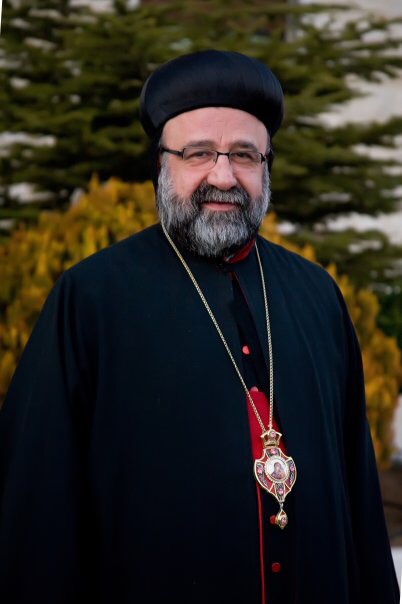|
In Syria, can Christians, Muslims rekindle the 'Dialogue of Life?'
Wednesday, April 8, 2015
On April 22, 2013, along with a fellow prelate, Syrian Archbishop Yohanna Ibrahim was kidnapped near the Turkish border. Since then, there has been very little information about the fate of Archbishop Ibrahim and Aleppo's Greek Orthodox Archbishop Paul Yazigi, but their case is being pursued at the highest diplomatic and Church levels. The archbishops' family has high hopes for their safe return.
In these reflections--written years before the start of the Syrian civil war--the archbishop meditates on the delicate, fragile nature of the "Dialogue of Life" that is nonetheless capable of creating bonds between Christians and Muslims.
By Archbishop
Gregorios Yohanna Ibrahim
The
plurality of religions and faiths does not foment an inter-religious conflict
due to the fact that the common denominator of its teachings, heritages and
ethics affirms the oneness of God and the multiplicity and integrity of its
people.
Whenever
Christians and Muslims approach the sources of divine teaching, they may feel that
their common heritage is part and parcel of the universal belief of the
relationship between man (the weak) and the Creator (the mighty). Christians
say we have one God and Muslim say there is no God but God.
From this
understanding of our common heritages derived the concept of the “Dialogue of
Life”—to which we owe our peaceful coexistence and the flourishing of our
communities. However, even given the rich ethno-religious diversity of our
communal tapestry, it is not at all like the concept of multiculturalism that
is emerging in Western society.
The “Dialogue
of life” is a rather simple, spontaneous, and natural way of life—a sort of
coexistence sustained by the values of solidarity, humanity, impartiality and
accepting the other unconditionally. Some may argue that our “Dialogue of Life”
draws on the principles outlined in the Geneva Convention. Not so, our “Dialogue”
has its own unwritten codes, whose values far predate this relatively new
Western concept of dialogue and coexistence.

The “Dialogue
of Life” is an inbuilt intuition: its values have been well tried and tested
throughout the centuries of our coexistence, both in situations of peace and
war, with and without the presence of media and UN observers. There is no need
for awareness classes, training courses or fundraising campaigns.
The “Dialogue
of Life” starts with the first steps of a toddler in the neighbourhood, and
carries on at nursery and schools, so that in adulthood people are well
equipped with the basic skill to coexist and keep this dialogue alive and
functional. Understandably, such values are not a commodity and certainly, may
not have a sell-by date. However, extremely
sensitive to the fluctuations of security and law and order in our milieu.
Therefore, they cannot be taken for granted, but need constant nurturing,
maintenance and enhancements.
The “Dialogue
of Life” reflects that we are all children of God, created in His image. We are
all in the same boat, facing the same reduced
circumstances. We often find ourselves peddling in shark-infested, uncharted
territories. Understandably, it is not necessary that all are able to
reciprocate But for us the principle of the survival of the fittest is not an
option, and it cannot be spelled out who will come out on top. The “Dialogue of
Life” hinges on accepting others and shuns religious or sectarian distinctions.
At this
juncture of our history, when war has become a part of daily life, there never
has been a greater need for this “Dialogue of Life.” It remains to be seen how
waterproof our treasured “Dialogue of Life” and what the limits of effectiveness
might be in such reduced and perilous circumstance—especially with so many
outside factions coming into our country with the object of tempering with our
way of life, upsetting our peaceful coexistence.
Let us hope
and pray that the profound effects of civil war will not be so great as to
prevent the recovery and survival of our “Dialogue of Life” and our civilized
coexistence.
This is an excerpt
from “Accepting the Other” (2006) by Mar Gregorios Yohanna Ibrahim, the Syrian
Orthodox archbishop of Aleppo, Syria. It was translated from Arabic for Aid to
the Church in Need.
ACN photo: Archbishop
Ibrahim
|